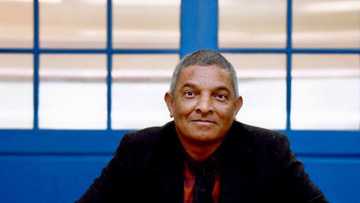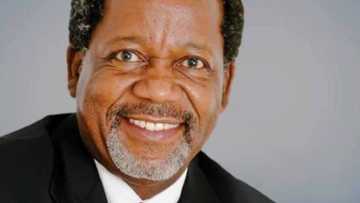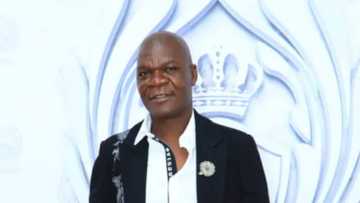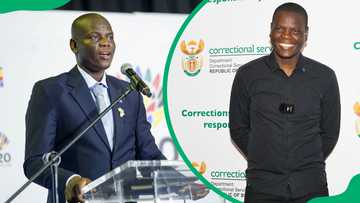A Life Well Lived: Desmond Tutu, South Africa’s Pioneer of Peace and Father of the ‘Rainbow Nation’
Archbishop Desmond Mpilo Tutu lead a remarkable life in his 90 years and will be missed by many
PAY ATTENTION: Click “See First” under the “Following” tab to see Briefly News on your News Feed!
Best known for his work as an anti-apartheid and human rights activist and his soft spoken nature, the late Desmond Mpilo Tutu will leave a mark in the many lives he touched in his impactful life. He was born on 7 October, 1931 and passed on 26 December, 2021.
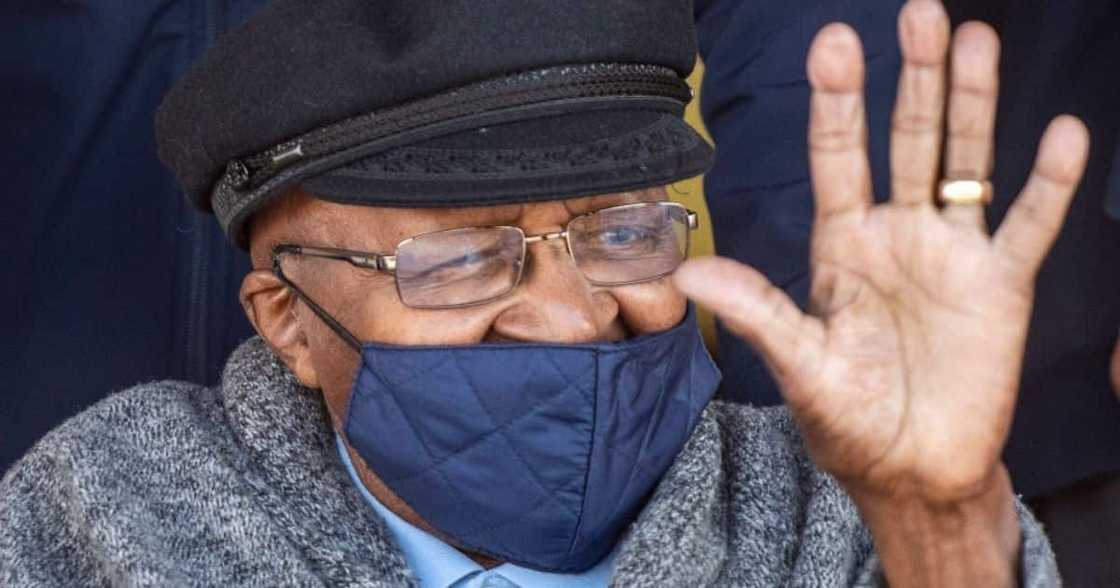
Source: Getty Images
Tutu was a South African Anglican bishop. He was the first black Bishop of Johannesburg from 1985 to 1986 and then the first black Archbishop of Cape Town from 1986 to 1996.
Briefly News decided to take a look into the life and times of the activist and peace advocate.
Desmond Tutu was 90 at the time of his passing. He is survived by his wife Leah, their four children and his many grandchildren as previously reported in Briefly News.
PAY ATTENTION: Never miss breaking news – join Briefly News' Telegram channel!
Where the archbishop’s journey began
Tutu was born of mixed Xhosa and Motswana heritage in Klerksdorp in the North West province. Entering adulthood, he trained as a teacher and married Nomalizo Leah Shenxane in 1955, with whom he had four children, confirms Wikipedia.
Briticanna.com reported that he wanted to pursue a medical career but unfortunately could not afford it and went for teaching instead.
"From 1951 to 1953, he studied at the Pretoria Bantu Normal College and taught Bantu High School until 1957. Due to poor educational projections for African South Africans, he resigned from the Bantu Education Act to further his studies for a better future," said Briefly News.
"In 1960, he was ordained as an Anglican priest and in 1962, he moved to the United Kingdom to study theology at King's College London. In 1966 he returned to Africa, teaching at the Federal Theological Seminary in South Africa, and then the University of Botswana, Lesotho and Swaziland," reported Wikipedia.
Desmond Tutu became famous in the 1980s when he stood firm against the apartheid rule. Due to his devotion and love for the people, he was chosen by many to be the first African South African Anglican Archbishop of Cape Town, Briefly News reported.
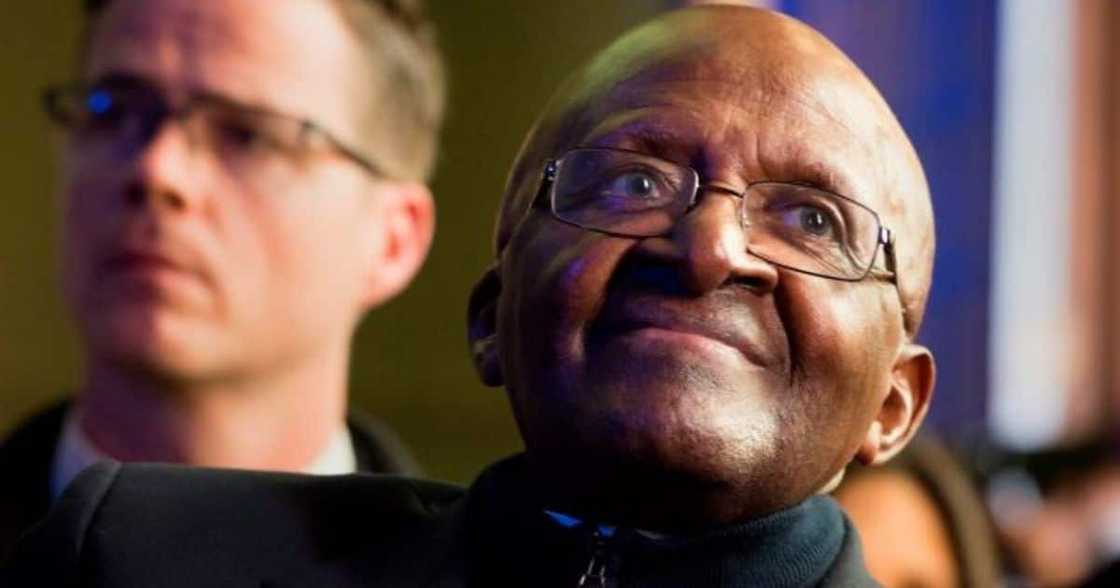
Source: Getty Images
Noble Peace Prize
The archbischop’s life is marked by many accomplishments and milestones. The most well-known one being awarded the Noble Peace Prize for Peace in 1984 for his role in the opposition to apartheid in South Africa.
According to The Noble Peace Prize, his personal objective was for “a democratic and just society without racial divisions”, to which he set the following points as minimum demands:
- equal civil rights for all
- the abolition of South Africa’s passport laws
- a common system of education
- the cessation of forced deportation from South Africa to the so-called “homelands”
Tutu’s role in the fight against apartheid
According to Wikipedia, Tthe archbishop assisted as a mediator between rival black factions when the then president FW de Klerk released the anti-apartheid activist Nelson Mandela from prison in 1990 and the pair led negotiations to end apartheid and introduce multi-racial democracy.
After the 1994 general election resulted in a coalition government headed by Mandela, he chose Tutu to chair the Truth and Reconciliation Commission (TRC) to investigate past human rights abuses committed by both pro and anti-apartheid groups.
His other initiatives
As reported in Wikipedia, following apartheid's fall, Tutu campaigned for gay rights and spoke out on a wide range of subjects, among them his support of Palestinians in the Israeli–Palestinian conflict (alongside his simultaneous belief in Israel's right to exist), his opposition to the Iraq War, and his criticism of South African presidents Thabo Mbeki and Jacob Zuma.
Tutu was committed to fighting Aids worldwide and has been the chairman of the Global Aids Alliance. After 1994, under the ANC rule, he was recognised for coining the word “Rainbow Nation” to define post-apartheid in South Africa, Briefly News reported.
In 2010, he retired from public life.
CNN reported that in October 2011 Tutu harshly criticised the South African government for failing to issue a visa to the Dalai Lama. He accused the government of pandering to China and in some ways being worse than the apartheid-era governments.
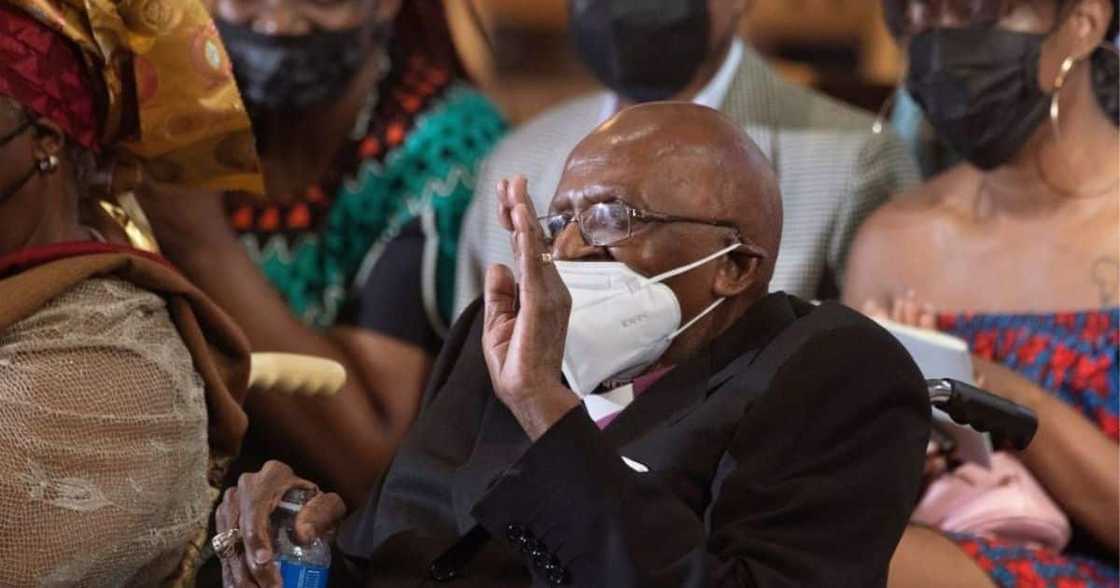
Source: Getty Images
Tutu the author
Tutu has written and coauthored a number of books and publications Briticanna.com states. These include:
- The Divine Intention (1982), a collection of his lectures
- Hope and Suffering (1983), a collection of his sermons
- No Future Without Forgiveness (1999), a memoir from his time as head of the Truth and Reconciliation Commission
- God Has a Dream: A Vision of Hope for Our Time (2004), a collection of personal reflections
- Made for Goodness: And Why This Makes All the Difference (2010), reflections on his beliefs about human nature.
- A children's book called Desmond and the Very Mean Word (2012) A children's book
Humanitarian work
In 1997, Desmond Tutu was diagnosed with prostate cancer, and in 2007, he became the lead patron of the South African Prostate Cancer Foundation. In 2004, he founded the Desmond Tutu HIV Foundation which is a s a nonprofit organisation founded to provide treatment for and conduct HIV/AIDS research. It is based in Cape Town.
The arch’s other noteworthy awards
On September 7th, 1986, Desmond led the Anglican Church in South Africa as the first black person. He was later invited to England for Christian Celebrations to mark the city’s centenary.
Tutu was accredited the Sydney Peace Prize in 1999 after the collapse of Apartheid.
In 2004, King’s College was celebrating its 175th anniversary, and Tutu was invited as a professor to give the Commemoration Oration. Tutu later acknowledged the Marymount University 2004 Ethics Award on March 17th, 2004.
In July 2009 Tutu was awarded the 2009 Presidential Medal of Freedom by US President Barack Obama, CNN reported.
In October 2012 he was awarded $1 million by the Mo Ibrahim Foundation for "his lifelong commitment to speaking truth to power."
In April 2013 - Tutu was awarded the 2013 Templeton Prize for his "life-long work in advancing spiritual principles such as love and forgiveness which has helped to liberate people around the world." The prize was worth about $1.7 million dollars.
Source: Briefly News


